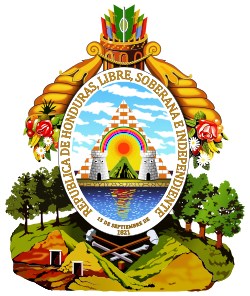 |
|---|
This article lists the presidents of Honduras , since the country declared its independence from the Spanish Empire on 15 September 1821.
 |
|---|
This article lists the presidents of Honduras , since the country declared its independence from the Spanish Empire on 15 September 1821.
On 1 July 1823 Honduras, along with Guatemala, El Salvador, Nicaragua and Costa Rica, declared its independence from the First Mexican Empire to form the short lived Federal Republic of Central America, also known as United Provinces of Central America. Honduras remained as a member state until it decided to separate in 1838. The entire union dissolved in civil war between 5 November 1838, when Nicaragua separated from the federation, and about 1840.
| No. | Portrait | Head of State (Birth–Death) | Term of office | Political party | ||
|---|---|---|---|---|---|---|
| Took office | Left office | Time in office | ||||
| 1 |  | Dionisio de Herrera (1781–1850) Supreme Director | 16 September 1824 | 10 May 1827 (Deposed) | 2 years, 236 days | Liberal |
| 2 | 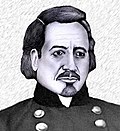 | José Justo Milla (1794–1838) | 10 May 1827 | 13 September 1827 | 126 days | Liberal |
| — |  | Cleto Bendaña (–) Provisional | 13 September 1827 | 24 October 1827 | 41 days | Conservative |
| 3 |  | José Jeronimo Zelaya (–) | 27 October 1827 | 11 November 1827 | 15 days | Conservative |
| 4 | 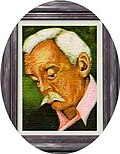 | Miguel Eusebio Bustamante (–) | 11 November 1827 | 26 November 1827 | 15 days | Liberal |
| — |  | Francisco Morazán (1792–1842) Provisional | 26 November 1827 | 30 June 1828 | 217 days | Liberal |
| 5 |  | Diego Vigil Cocaña (1799–1845) Manager | 30 June 1828 | 2 December 1829 | 1 year, 155 days | Liberal |
| 6 |  | Francisco Morazán (1792–1842) | 2 December 1829 | 24 December 1829 | 22 days | Liberal |
| 7 |  | Juan Ángel Arias (–) Manager | 24 December 1829 | 22 April 1830 | 119 days | Liberal |
| (6) |  | Francisco Morazán (1792–1842) | 22 April 1830 | 28 July 1830 | 97 days | Liberal |
| — |  | José Santos del Valle (–) Provisional | 28 July 1830 | 12 March 1831 | 227 days | Conservative |
| 8 |  | José Antonio Márquez (–) | 12 March 1831 | 22 March 1832 | 1 year, 10 days | Conservative |
| 9 |  | José Francisco Milla Guevara (–) | 22 March 1832 | 7 January 1833 | 291 days | Conservative |
| 10 |  | Joaquín Rivera (–) | 7 January 1833 | 31 December 1836 | 3 years, 359 days | Independent |
| — |  | José María Martínez Salinas (–) Provisional | 1 January 1837 | 28 May 1837 | 147 days | Independent |
| 11 |  | Justo Herrera (–) | 28 May 1837 | 3 September 1838 | 1 year, 98 days | Liberal |
| 12 |  | José María Martínez Salinas (–) | 3 September 1838 | 12 November 1838 | 70 days | Independent |
| 13 |  | José Lino Matute (–) | 12 November 1838 | 9 January 1839 | 58 days | Liberal |
Honduras declared itself independent on 15 November 1838, and a constitution was formally adopted in January 1839. After a period of instability, conservative General Francisco Ferrera became the first elected president of the country for a two-year term, but then extended his de facto control of the nation for the next five years.
Most presidents after 1900 represent one of the two dominant political parties, the Liberal Party of Honduras (PLH) and the National Party of Honduras (PNH).
The most recent general election was held on 28 November 2021, with Xiomara Castro of Libre elected president, taking office on 27 January 2022. [1] [2]
| No. | Portrait | President (Birth–Death) | Elected | Term of office | Political party | ||
|---|---|---|---|---|---|---|---|
| Took office | Left office | Time in office | |||||
| 1 |  | Juan Francisco de Molina (1779–1878) | — | 11 January 1839 | 13 April 1839 | 92 days | Liberal |
| — |  | Felipe Neri Medina (1797–?) Acting President | — | 13 April 1839 | 15 April 1839 | 2 days | Liberal |
| — |  | Juan José Alvarado (1798–1857) Acting President | — | 15 April 1839 | 27 April 1839 | 12 days | Independent |
| — |  | José María Guerrero (1799–1853) Acting President | — | 27 April 1839 | 10 August 1839 | 105 days | Conservative |
| — |  | Mariano Garrigó (1810–?) Acting President | — | 10 August 1839 | 20 August 1839 | 10 days | Independent |
| — |  | José María Bustillo (?–1855) Acting President | — | 20 August 1839 | 27 August 1839 | 7 days | Conservative |
| — |  | Council of Ministers | — | 27 August 1839 | 21 September 1839 | 25 days | Council of Ministers |
| — |  | Francisco Zelaya y Ayes (1798–1848) Acting President | — | 21 September 1839 | 1 January 1841 | 1 year, 102 days | Conservative |
| 2 |  | Francisco Ferrera (1794–1851) | — | 1 January 1841 | 31 December 1842 | 1 year, 364 days | Conservative |
| — |  | Council of Ministers | — | 1 January 1843 | 23 February 1843 | 53 days | Council of Ministers |
| 3 |  | Francisco Ferrera (1794–1851) | — | 23 February 1843 | 31 December 1844 | 1 year, 312 days | Conservative |
| — |  | Council of Ministers | — | 1 January 1845 | 8 January 1845 | 7 days | Council of Ministers |
| 4 | 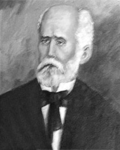 | Coronado Chávez (1807–1881) | — | 8 January 1845 | 1 January 1847 | 1 year, 358 days | Conservative |
| — |  | Council of Ministers | — | 1 January 1847 | 12 February 1847 | 42 days | Council of Ministers |
| 5 |  | Juan Lindo (1790–1857) | — | 12 February 1847 | 1 February 1852 | 4 years, 354 days | Conservative |
| — |  | Francisco Gómez (?–1854) Acting President | — | 1 February 1852 | 1 March 1852 | 29 days | Liberal |
| 6 |  | José Trinidad Cabañas (1805–1871) | 1852 | 1 March 1852 | 18 October 1855 | 3 years, 231 days | Liberal |
| — |  | José Santiago Bueso (1815–1857) Acting President | — | 18 October 1855 | 8 November 1855 | 21 days | Liberal |
| — |  | Francisco de Aguilar (1810–?) Acting President | — | 8 November 1855 | 17 February 1856 | 101 days | Liberal |
| 7 |  | José Santos Guardiola (1816–1862) | 1856 1860 | 17 February 1856 | 11 January 1862 | 5 years, 328 days | Conservative |
| — |  | José Francisco Montes (1830–1888) Acting President | — | 11 January 1862 | 4 February 1862 | 24 days | Liberal |
| — |  | Victoriano Castellanos (1796–1862) Acting President | — | 4 February 1862 | 11 December 1862 | 310 days | Liberal |
| — |  | José Francisco Montes (1830–1888) Acting President | — | 11 December 1862 | 7 September 1863 | 270 days | Liberal |
| — |  | José María Medina (1826–1878) Acting President | — | 7 September 1863 | 31 December 1863 | 115 days | Conservative |
| — |  | Francisco Inestroza (1810–?) Acting President | — | 31 December 1863 | 15 March 1864 | 75 days | Conservative |
| — |  | Francisco Cruz Castro (1820–1895) Provisional President | — | 5 September 1869 | 14 January 1870 | 131 days | Conservative |
| 8 |  | José María Medina (1826–1878) | 1864 1866 1869 | 15 March 1864 | 26 July 1872 | 8 years, 133 days | Conservative |
| — | 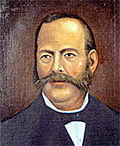 | Céleo Arias (1835–1890) Provisional President | — | 26 July 1872 | 13 January 1874 | 1 year, 171 days | Liberal |
| 9 |  | Ponciano Leiva (1821–1896) | 1874 | 13 January 1874 | 8 June 1876 | 2 years, 147 days | Conservative |
| — |  | Marcelino Mejía Provisional President | — | 8 June 1876 | 13 June 1876 | 5 days | Conservative |
| — |  | Crescencio Gómez (1833–1921) Provisional President | — | 13 June 1876 | 12 August 1876 | 60 days | Conservative |
| — |  | José María Medina (1826–1878) Provisional President | — | 12 August 1876 | 27 August 1876 | 15 days | Conservative |
| 10 |  | Marco Aurelio Soto (1846–1908) | 1877 1881 | 27 August 1876 | 19 October 1883 | 7 years, 53 days | Liberal |
| — |  | Council of Ministers | — | 19 October 1883 | 30 November 1883 | 42 days | Council of Ministers |
| 11 |  | Luis Bográn (1849–1895) | 1883 1887 | 30 November 1883 | 30 November 1891 | 8 years | Conservative |
| 12 |  | Ponciano Leiva (1821–1896) | 1891 | 30 November 1891 | 7 August 1893 | 1 year, 250 days | Conservative |
| 13 |  | Domingo Vásquez (1846–1909) | 1893 | 7 August 1893 | 22 February 1894 | 199 days | Conservative |
| 14 |  | Policarpo Bonilla (1858–1926) | 1894 | 22 February 1894 | 1 February 1899 | 4 years, 344 days | Liberal |
| 15 | 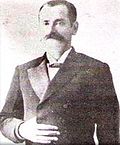 | Terencio Sierra (1839–1907) | 1898 | 1 February 1899 | 1 February 1903 | 4 years | Liberal |
| 16 |  | Juan Ángel Arias Boquín (1859–1927) | — | 1 February 1903 | 13 April 1903 | 71 days | Liberal |
| 17 |  | Manuel Bonilla (1849–1913) | 1902 | 13 April 1903 | 25 February 1907 | 3 years, 318 days | National |
| — |  | Miguel Oquelí Bustillo (1856–1938) Chairman of the Provisional Government Junta | — | 25 February 1907 | 18 April 1907 | 52 days | Liberal |
| 18 |  | Miguel R. Dávila (1856–1927) | — | 18 April 1907 | 28 March 1911 | 3 years, 344 days | Liberal |
| — |  | Francisco Bertrand (1866–1926) Acting President | — | 28 March 1911 | 1 February 1912 | 310 days | National |
| 19 |  | Manuel Bonilla (1849–1913) | 1911 | 1 February 1912 | 21 March 1913 | 1 year, 48 days | National |
| 20 |  | Francisco Bertrand (1866–1926) | 1915 | 21 March 1913 | 9 September 1919 | 6 years, 172 days | National |
| — |  | Salvador Aguirre (1862–1947) Acting President | — | 9 September 1919 | 16 September 1919 | 7 days | National |
| — |  | Vicente Mejía Colindres (1878–1966) Acting President | — | 16 September 1919 | 5 October 1919 | 19 days | Liberal |
| — |  | Francisco Bográn (1852–1926) Acting President | — | 5 October 1919 | 1 February 1920 | 119 days | Liberal |
| 21 |  | Rafael López Gutiérrez (1854–1924) | 1919 | 1 February 1920 | 10 March 1924 | 4 years, 68 days | Liberal |
| — |  | Francisco Bueso (1860–?) Acting President | — | 10 March 1924 | 27 April 1924 | 48 days | Liberal |
| — |  | Tiburcio Carías Andino (1876–1969) First Chief of the Liberating Revolution | 1923 | 27 April 1924 | 30 April 1924 | 3 days | National |
| — |  | Vicente Tosta (1886–1930) Provisional President | — | 30 April 1924 | 1 February 1925 | 277 days | Liberal |
| 22 |  | Miguel Paz Barahona (1863–1937) | 1924 | 1 February 1925 | 1 February 1929 | 4 years | National |
| 23 |  | Vicente Mejía Colindres (1878–1966) | 1928 | 1 February 1929 | 1 February 1933 | 4 years | Liberal |
| 24 |  | Tiburcio Carías Andino (1876–1969) | 1932 1936 1939 | 1 February 1933 | 1 January 1949 | 15 years, 335 days | National |
| 25 |  | Juan Manuel Gálvez (1887–1972) | 1948 | 1 January 1949 | 5 December 1954 | 5 years, 338 days | National |
| — |  | Julio Lozano Díaz (1885–1957) Supreme Head of State | — | 5 December 1954 | 21 October 1956 | 1 year, 321 days | National |
| — |  | Military Junta | — | 21 October 1956 | 21 December 1957 | 1 year, 61 days | Military |
| 26 | 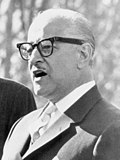 | Ramón Villeda Morales (1909–1971) | 1954 1957 | 21 December 1957 | 3 October 1963 (Deposed) | 5 years, 286 days | Liberal |
| 27 | 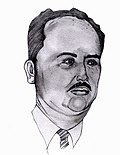 | Oswaldo López Arellano (1921–2010) | 1965 | 3 October 1963 | 7 June 1971 | 7 years, 247 days | Military |
| 28 |  | Ramón Ernesto Cruz Uclés (1903–1985) | 1971 | 7 June 1971 | 4 December 1972 | 1 year, 180 days | National |
| — |  | Oswaldo López Arellano (1921–2010) Head of State | — | 4 December 1972 | 22 April 1975 (Deposed) | 2 years, 139 days | Military |
| — |  | Juan Alberto Melgar Castro (1930–1987) Head of State | — | 22 April 1975 | 7 August 1978 | 3 years, 107 days | Military |
| — |  | Policarpo Paz García (1932–2000) Provisional President | 1980 | 7 August 1978 | 27 January 1982 | 3 years, 173 days | Military |
| 29 |  | Roberto Suazo Córdova (1927–2018) | 1981 | 27 January 1982 | 27 January 1986 | 4 years | Liberal |
| 30 |  | José Azcona del Hoyo (1927–2005) | 1985 | 27 January 1986 | 27 January 1990 | 4 years | Liberal |
| 31 |  | Rafael Leonardo Callejas Romero (1943–2020) | 1989 | 27 January 1990 | 27 January 1994 | 4 years | National |
| 32 |  | Carlos Roberto Reina (1926–2003) | 1993 | 27 January 1994 | 27 January 1998 | 4 years | Liberal |
| 33 |  | Carlos Roberto Flores (born 1950) | 1997 | 27 January 1998 | 27 January 2002 | 4 years | Liberal |
| 34 | 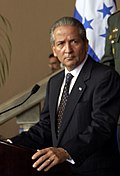 | Ricardo Maduro (born 1946) | 2001 | 27 January 2002 | 27 January 2006 | 4 years | National |
| 35 |  | Manuel Zelaya (born 1952) | 2005 | 27 January 2006 | 28 June 2009 (Deposed) | 3 years, 152 days | Liberal |
| 36 |  | Roberto Micheletti (born 1943) (Disputed) | — | 28 June 2009 | 27 January 2010 | 213 days | Liberal |
| 37 |  | Porfirio Lobo Sosa (born 1947) | 2009 | 27 January 2010 | 27 January 2014 | 4 years | National |
| 38 |  | Juan Orlando Hernández (born 1968) | 2013 2017 | 27 January 2014 | 27 January 2022 | 8 years | National |
| 39 |  | Xiomara Castro (born 1959) | 2021 | 27 January 2022 | Incumbent (Term ends on 27 January 2026) | 3 years, 350 days | Libre |
| 40 |  | Nasry Asfura (born 1958) | 2025 | President-elect Assuming office: 27 January 2026 | −15 days | National | |
